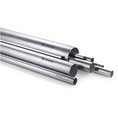Introduction
Stainless steel sinks are a popular choice for kitchens due to their durability, rust resistance, and aesthetic appeal. However, one common question that arises is "What is the life expectancy of a stainless steel sink?" The answer to this question depends on several factors, including the quality of the sink, the level of maintenance it receives, and the frequency of use. In this article, we will explore these factors in detail and provide insights on how to increase the life expectancy of your stainless steel sink.
Factors that Affect the Life Expectancy of a Stainless Steel Sink
1. Quality of the Sink
The quality of the sink is one of the most significant factors that can affect its life expectancy. High-quality stainless steel sinks are made of a thicker gauge of steel that is less prone to rusting, denting, or scratching. In contrast, lower quality sinks are made of a thinner gauge of steel, which makes them more susceptible to damage.
2. Maintenance
Proper maintenance is crucial if you want to extend the life of your stainless steel sink. Regular cleaning helps to prevent the buildup of dirt, grease, and other substances that can cause corrosion or discoloration over time. It is recommended to clean the sink with a soft sponge or cloth and mild soap or detergent. Avoid using abrasive cleaners or steel wool pads, which can scratch the surface of the sink.
3. Frequency of Use
The frequency of use also plays a role in determining the life expectancy of a stainless steel sink. An extensively used sink is likely to wear out more quickly than a sink that is used less frequently. For example, a sink in a commercial kitchen is likely to experience more wear and tear than a sink in a residential kitchen.
Average Life Expectancy of a Stainless Steel Sink
The average life expectancy of a stainless steel sink can range from 15-30 years, depending on the previously mentioned factors. A high-quality sink that is well-maintained and used infrequently can last up to 30 years.
However, if the sink is of low quality, not maintained correctly, and subjected to frequent use, its life expectancy may be as low as five years. It is crucial to keep in mind that harsh chemicals, high temperatures, and physical damages such as heavy impact or scratches can severely reduce the lifespan of a sink.
How to Increase the Life Expectancy of Your Stainless Steel Sink
1. Choose a Quality Sink
Choosing a high-quality stainless steel sink with a thicker gauge of steel can help increase its lifespan. A thicker steel gauge reduces the chances of denting and rusting and provides a more robust and durable product.
2. Maintain Properly
Any sink requires regular maintenance to ensure its longevity. Keep your sink clean, dry, and free of any hard water stains, as this will prevent corrosion. Avoid using abrasive cleaning products and harsh chemicals on the sink. Using mild dish soap and water with a soft sponge is enough to clean and maintain a stainless steel sink''s quality.
3. Avoid Physical Damage
Avoid using sharp or heavy tools on the surface of your sink as it can scratch or cause dents. Similarly, avoid exposing the sink to high temperatures, such as placing hot pots or pans directly in the sink. Always use a trivet or hot pad to protect the sink from heat.
Conclusion
In conclusion, the life expectancy of a stainless steel sink depends on several factors, including quality, maintenance, and frequency of use. A high-quality sink that is well-maintained and not subjected to extensive use can last up to 30 years. Conversely, a low-quality sink that is not appropriately maintained and subjected to frequent use can have a lifespan as low as five years. By selecting a quality sink, maintaining it correctly, and avoiding physical damages, you can prolong your sink''s life expectancy and ensure long-lasting satisfaction with your kitchen investment.




